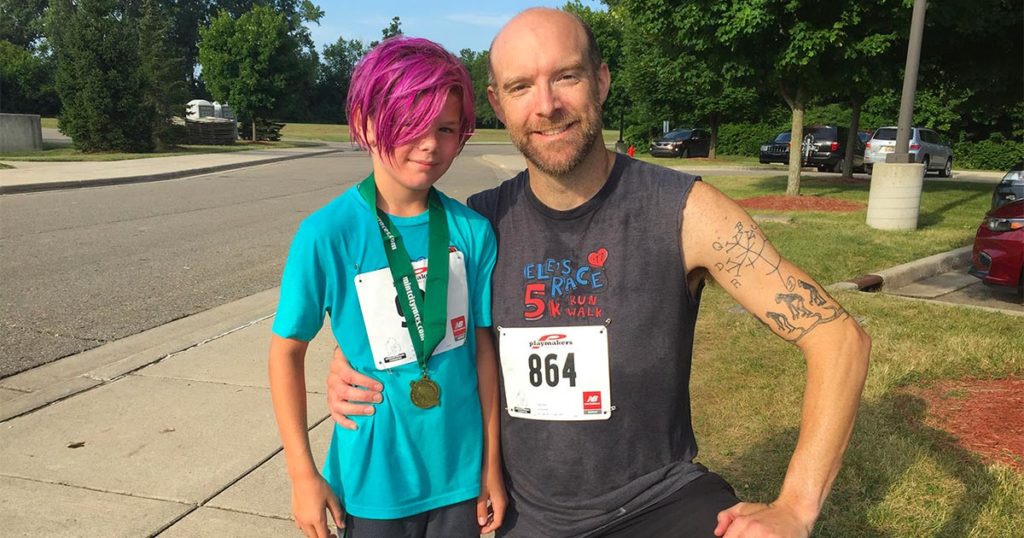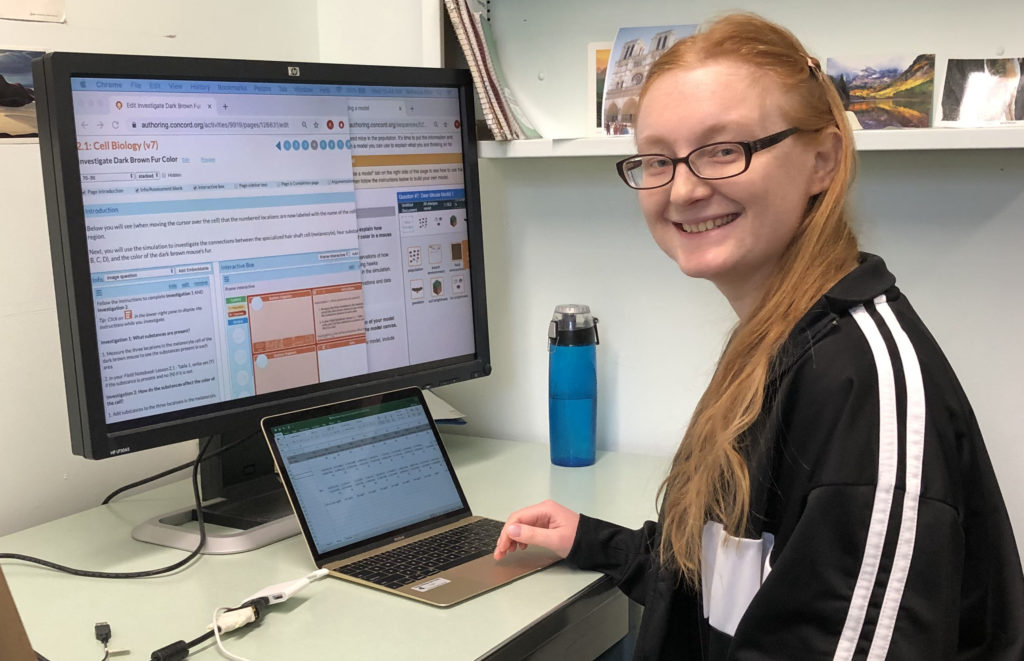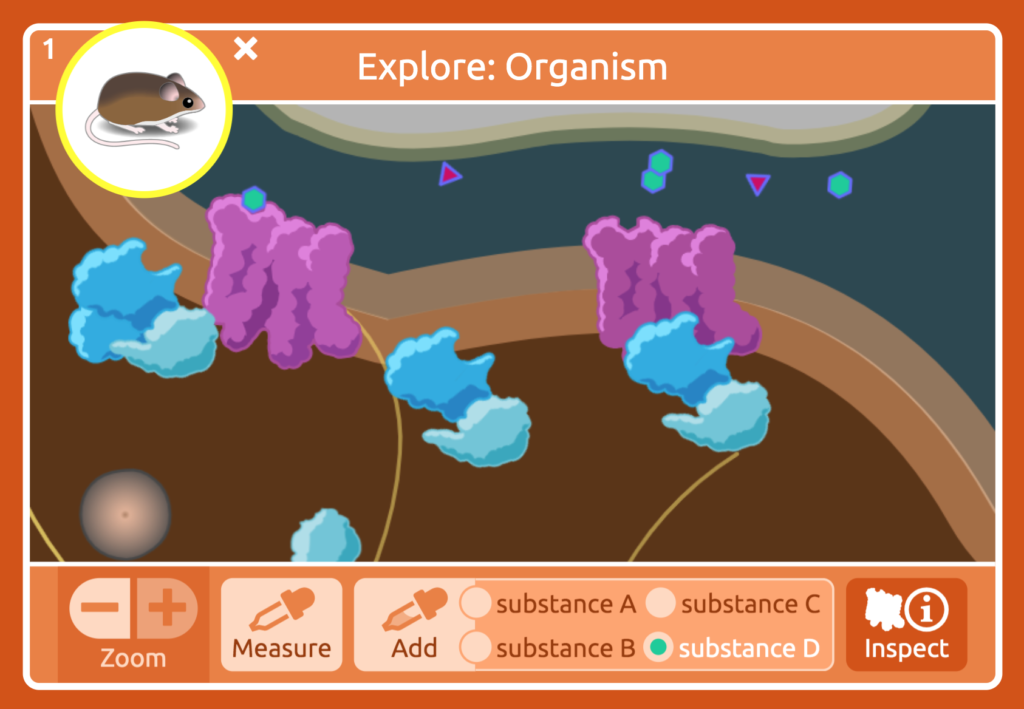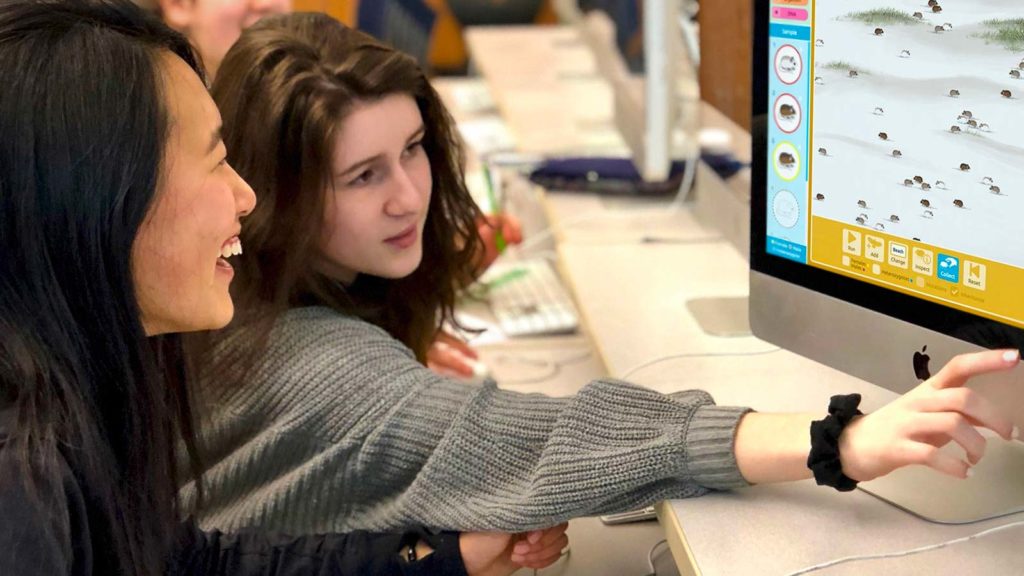Category: Tag: evolution
Evolution is a particularly daunting subject to teach and to understand. The evidence for it is indirect and the model rests largely on phenomena that cannot be directly observed, including some that are poorly understood to this day. A research-based set of curriculum materials aimed at upper elementary and middle school students can help. We […]
Constructing a coherent picture of the multiple complex biological processes involved in evolution is challenging—more so because of how evolution is taught in school. “One of the barriers to students understanding evolution is that we have all these processes that can be involved with evolution, but students don’t learn about them in the same context,” […]
Rebecca Ellis is a postdoctoral researcher who earned her Ph.D. in curriculum, instruction, and teacher education at Michigan State University. So why does she get “carded” every time she goes into a high school to conduct research? “A teacher asked me once if I’d like to sign up for driver’s ed.” She understands that she […]
Challenged by how to teach the complex topics of genetics and evolution in an integrated way? Then don’t miss Concord Consortium’s upcoming Connected Biology presentation at the National Association of Biology Teachers annual professional development conference in Chicago (November 14-17, 2019). Three high school biology teachers who have piloted ConnectedBio’s technology-enhanced lessons and hands-on manipulatives […]
Using computer-based, manipulable models of interacting organisms and their environments, fourth grade students learn Darwin’s model of natural selection as the process primarily responsible for evolution.
At the Concord Consortium, we believe that the most powerful educational experiences engage the whole learner, and that educational technologies are most effective when they leverage students’ social, cognitive, and creative abilities. Yet as trends in educational technology push us toward more individualized, computer based-instruction on personal devices, these advances threaten to constrain learning to […]
This collaborative effort between Michigan State University and the Concord Consortium is developing and researching a connected set of technology-enhanced three-dimensional lessons for high school biology that are aligned with NGSS performance expectations.
A new collaborative research project at the Concord Consortium and Michigan State University will develop and research learning materials on the molecular and cellular basis for genetics and the process of evolution by natural selection. These two areas are both difficult to teach and learn, and although they have been historically taught separately, they are […]
Scientific theories differ from other belief systems in that they are testable; in other words, they can be disproved. Imagine reading, for instance, any of the following headlines: “Modern Chicken Fossil Found Side By Side with Dinosaur Bones” “Chimpanzee DNA Radically Different From Human” “New Data Shows Earth Only 10,000 [or 100,000 or 10,000,000] Years […]






